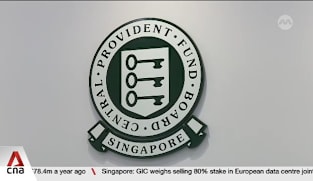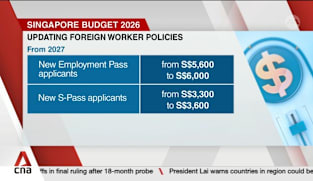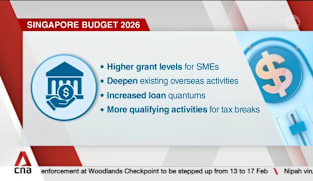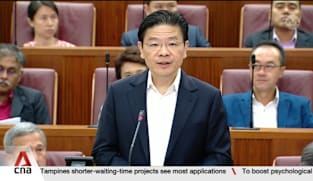Edwin Tong on Insolvency, Restructuring and Dissolution (Amendment) Bill
The Simplified Insolvency Programme (SIP) was introduced in 2021 as a temporary measure and as part of the larger package of measures to support companies during the COVID-19 pandemic. It has been extended three times and will end on Jan 28 in 2026. The SIP was by and large useful in assisting micro and small companies (MSCs) in severe financial distress by helping them to restructure their debts, rehabilitate their business or wind up via a simpler, faster and lower-cost insolvency process. As at 31 December 2024, 61 MSCs in severe financial distress were successfully assisted. The cases were completed within an average of nine months and some as quickly as a few months. This compares very favourably with a typical process which could take between three and four years. Second Minister for Law Edwin Tong highlighted these outcomes as he outlined the proposals for an SIP 2.0. Mr Tong said public agencies and stakeholders from the private sector and industry were generally supportive of a "permanent" SIP. The Insolvency, Restructuring and Dissolution (Amendment) Bill will modify two existing processes under the SIP, namely the Simplified Debt Restructuring Programme (SDRP) and the Simplified Winding Up Programme (SWUP). SIP 2.0 will be fully administered by licensed insolvency practitioners in the private sector who are experienced and have the relevant expertise. One key change is to streamline the current list of five criteria to just one - that the company’s total liabilities must not exceed S$2 million. Under the SDRP, the company will draw a debt restructuring proposal for its creditors which provides for a compromise or otherwise an arrangement to resolve its debts. Mr Tong said the proposed SIP 2.0 will make the insolvency process simpler, more cost-effective and benefit a larger group of companies.
The Simplified Insolvency Programme (SIP) was introduced in 2021 as a temporary measure and as part of the larger package of measures to support companies during the COVID-19 pandemic. It has been extended three times and will end on Jan 28 in 2026. The SIP was by and large useful in assisting micro and small companies (MSCs) in severe financial distress by helping them to restructure their debts, rehabilitate their business or wind up via a simpler, faster and lower-cost insolvency process. As at 31 December 2024, 61 MSCs in severe financial distress were successfully assisted. The cases were completed within an average of nine months and some as quickly as a few months. This compares very favourably with a typical process which could take between three and four years. Second Minister for Law Edwin Tong highlighted these outcomes as he outlined the proposals for an SIP 2.0. Mr Tong said public agencies and stakeholders from the private sector and industry were generally supportive of a "permanent" SIP. The Insolvency, Restructuring and Dissolution (Amendment) Bill will modify two existing processes under the SIP, namely the Simplified Debt Restructuring Programme (SDRP) and the Simplified Winding Up Programme (SWUP). SIP 2.0 will be fully administered by licensed insolvency practitioners in the private sector who are experienced and have the relevant expertise. One key change is to streamline the current list of five criteria to just one - that the company’s total liabilities must not exceed S$2 million. Under the SDRP, the company will draw a debt restructuring proposal for its creditors which provides for a compromise or otherwise an arrangement to resolve its debts. Mr Tong said the proposed SIP 2.0 will make the insolvency process simpler, more cost-effective and benefit a larger group of companies.



















